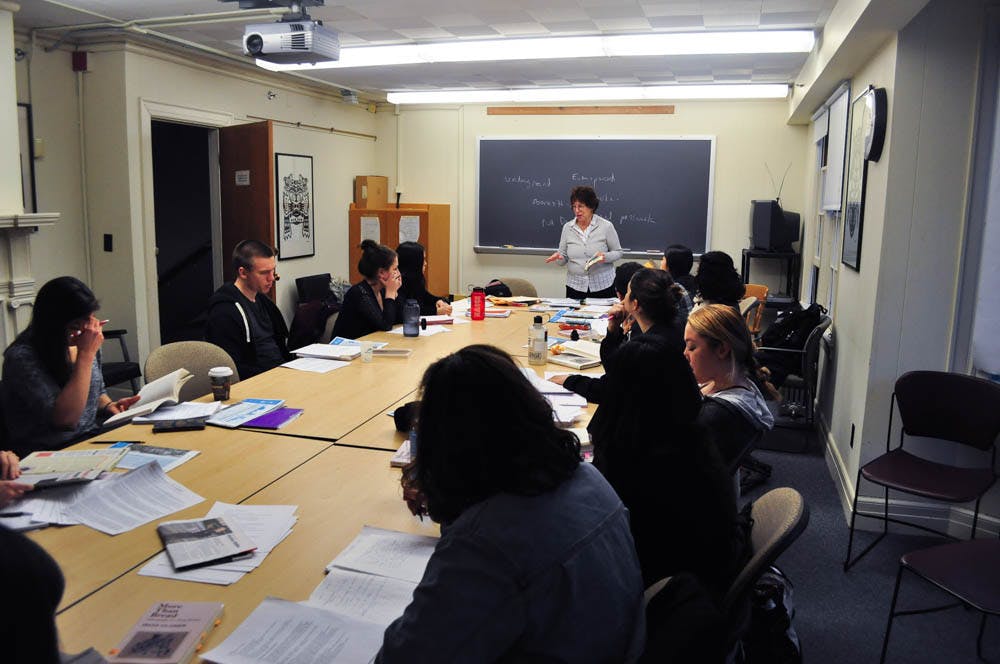Each week, students taking the class ANTH 1301: “Anthropology of Homelessness” complete coursework one might expect from a typical anthropology class — they read and analyze books, prepare for exams and write papers, all about different aspects of homelessness. But in addition, students spend at least two hours per week volunteering at local organizations geared toward helping the homeless population in Providence.
Professor of Anthropology Irene Glasser, who teaches the course, wrote her dissertation on the topic of soup kitchens and homelessness in 1986 and has written several books on the topic since. Glasser, who developed this course based on decades of experience in the field, was invited to come teach at the University three years ago.
“I hope that students can see with their own eyes and ears what it means to be a homeless person,” Glasser said. Students often get a glimpse of how hard it is to escape homelessness when they experience the difficulty of assisting someone with a housing application, she said. “It is very hard to get affordable housing. Students get to have the opportunity to see what it is like in the homeless milieu.”
Sarah Hsu ’17 took the course last year after being involved with Housing Opportunities for People Everywhere, where she is currently a community fellow through the Swearer Center. The course gave Hsu “a more holistic perspective on homelessness,” as well as a better understanding of how certain policies actually affect homeless people on a day-to-day basis, she said.
“The community placement was definitely the best part of the course,” Hsu said. “It really made us question the practices of participant observation and the role of a Brown student in these communities.”
The course is “eye-opening,” said Gabriel Zimmerman ’17.5, who is currently enrolled in the course. “Even at Brown, where we consider ourselves a liberal place, we have a lot of misconceptions about homelessness.” For example, he said, 40 percent of homeless people in Providence are women with families, and many are undocumented immigrants without access to social services. “Glasser really addresses the root causes of homeless.”
Glasser is impressed with her students’ genuine interest in the subject matter, she said. “I very much enjoy the very thoughtful questions students ask in class, and it’s clear that they’ve read and analyzed the material very carefully,” she said.
Lauren Galvan ’16 took the course last spring after taking another course taught by Glasser called ANTH 1300: “The Anthropology of Addictions and Recovery.” In “Anthropology of Homelessness,” Galvan “gained an understanding that homelessness is not the fault of anyone’s actions — or lack thereof — but rather a result of systemic failures,” she said. The course “gets you off of College Hill, which is not reflective of the real world at all,” she added.
While delving into homelessness is critical to the course’s objectives, the students do not always adjust to community engagement immediately, Glasser said. Homelessness is a challenging topic, and it can be hard for students to settle into their community placements as volunteers. “Sometimes, students feel like a fish out of water because it’s not their own culture. It’s the homeless culture,” she said.





